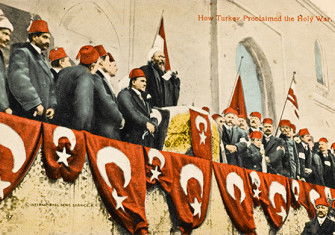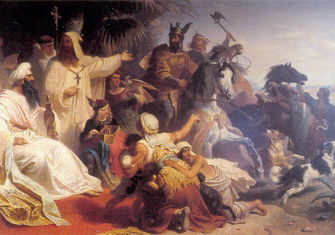New Caliphate, Old Caliphate
As the jihadists of ISIS continue their brutal campaign to restore the Islamic caliphate, Conor Meleady draws parallels with the ultimately futile efforts of another would-be caliph a century ago.
When the organisation known as Islamic State in Iraq and Syria (ISIS) announced at the end of June 2014 that it was seeking to restore the Islamic caliphate, with its leader, Abu Bakr al-Baghdadi, as caliph, it set off a wave of debate both among jihadists and western analysts. The debate concerned the legitimacy of al-Baghdadi’s claim and the likelihood of ISIS securing the support of the Islamic world for its project. Some analysts declared it to be the first time since Mustafa Kemal Atatürk’s abolition of the Ottoman Empire in March 1924 that any group or individual had been bold enough to make such a claim. In fact, just days after Atatürk’s action, the Hashimite Sharif Husayn of Mecca, King of the Hijaz, proclaimed himself caliph, inititating a controversy similar to that which al-Baghdadi’s declaration provoked. It was a controversy in which the officials charged with formulating Britain’s postwar policy in the Near East were deeply implicated.







